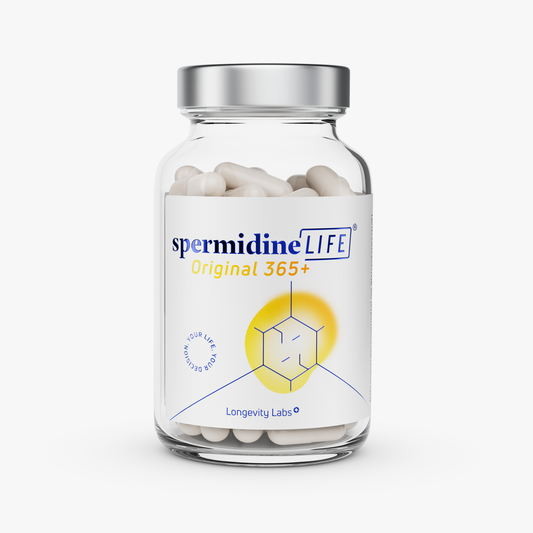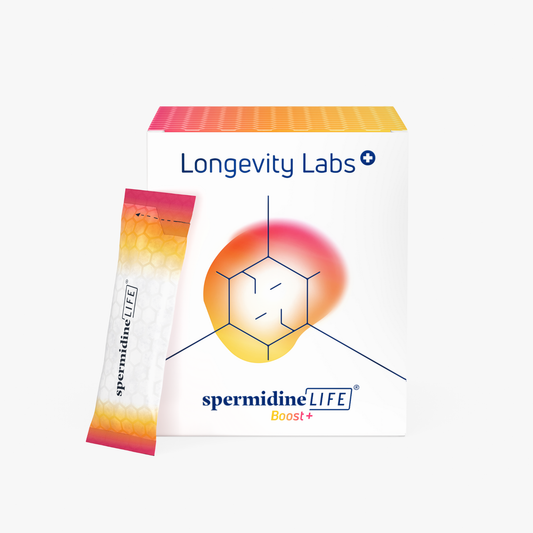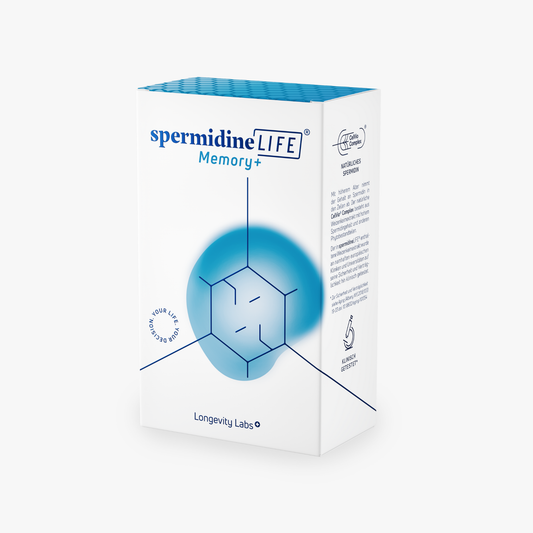
Telomeres simply explained: What they have to do with aging
Science, TLL LongevityLabsYour body consists of trillions of cells . Each cell contains a set of instructions in the form of code for the body – called DNA . These instructions are neatly packaged to fit inside chromosomes . At the end of each chromosome are telomeres . You can imagine them as protective caps . They ensure that cells can divide without losing important information from the DNA.
Why do telomeres shorten?
When a cell divides , it has to copy the DNA. This works almost perfectly – only the last bit at the end ca n't be copied completely . This is precisely where telomeres help: They are located at the end of the chromosomes (in which the DNA is embedded), and thus only small pieces of the telomeres are lost during copying, while the important information from the DNA remains intact .
Over time, the telomeres become shorter . When they reach a critically short length , the cell can no longer divide . They are then removed either inactively or in a controlled manner (cell death/apoptosis). This is a normal part of aging . This is particularly noticeable where cells divide frequently—for example, in the skin, hair , and immune system (you notice this through wrinkles, gray hair, and by feeling more "susceptible" to disease).
In theory, telomeres determine how long a cell remains functional without additional influences.
A step back: What are chromosomes anyway?
DNA is a very long strand of information. To fit into the cell nucleus, it is wound up and bundled together – this is how the chromosomes are formed. Humans have 46 chromosomes (23 pairs) in each cell. Egg and sperm cells are an exception: they contain only half as many , so that 46 come together again during fertilization. The genes on DNA are individual "segments" containing blueprints for almost everything the body produces and uses.
Telomeres protect – and they determine how quickly cells age
The function of telomeres is to protect the ends of chromosomes—and thus the genetic information. With each cell division, a small piece of telomere is lost at the end; therefore, they become shorter with each division. Their length indicates a cell's remaining division reserve: long telomeres mean that many more divisions are possible; very short telomeres lead to a halt in division, senescence, or the controlled degradation of the cell. Therefore, signs of aging are particularly noticeable where cells renew themselves frequently—for example, in the skin, hair, and parts of the immune system.
Telomerase: The enzyme that can lengthen telomeres
There is an enzyme called telomerase . It can lengthen telomeres. Elizabeth H. Blackburn , Jack W. Szostak , and Carol W. Greider received the 2009 Nobel Prize in Medicine for their research into telomeres and the discovery of telomerase.
It's important to note that telomerase is not equally active in all cells. It is more active in rapidly dividing cells (e.g., in the immune system or bone marrow ) – there, it helps keep telomeres stable so these cells can perform their functions effectively.
Telomerase is also highly active in many cancer cells ; as a result, their telomeres remain long and the cancer cells can continue to divide uncontrollably .
What accelerates the shortening – and what can help?
Telomeres always shorten slightly when cells divide—this is normal. However, there are things that can accelerate this process—primarily things that cause cellular stress :
- Obesity : Obesity causes a type of chronic inflammation in cells, producing oxidative damage. This damage particularly affects telomeres.
- High alcohol consumption : Clearly linked to shorter telomeres – constant exposure promotes cell stress and rapid division .
- Other stressors : Too much sun (UV), air pollution, radiation, nicotine, highly processed food/junk food.
- Chronic stress : Long-term psychological pressure is associated with shortened telomeres and accelerated aging .
Are there also positive influences? Yes. Studies have observed that:
- a plant-based, low-fat diet rich in vegetables , legumes and fruit was linked to higher telomerase activity ,
- and regular exercise – especially endurance – can stimulate telomerase and stabilize telomeres.
What does this mean for you?
There's nothing that keeps cells forever young —aging is simply a part of life. What you can influence, however, is HOW you age by reducing the pressure on your cells and thus slowing down the shortening process :
- Sun exposure (shade, clothing, appropriate sunscreen)
- Avoid smoking , drink alcohol in moderation
- Exercise regularly – plan for recovery, build endurance
- Eat a balanced diet : plenty of plant-based foods , good fats , sufficient protein
- Prioritize sleep and reduce chronic stress
- Reduce environmental pollution where possible (e.g. ventilation, occupational safety, reducing solvent contact)
Summary
Telomeres are the protective caps at the end of your DNA strands (chromosomes). They shorten with each cell division—this is normal . If they become too short , the cell stops dividing and is removed ; this is part of the natural aging process . You can slow this shortening with everyday habits . Studies also show that diet and exercise can support telomerase —the enzyme that can lengthen telomeres.
Important: Aging is a part of life. However, with small adjustments in your daily routine, you can strengthen your cells and thus noticeably improve your well-being and quality of life .






